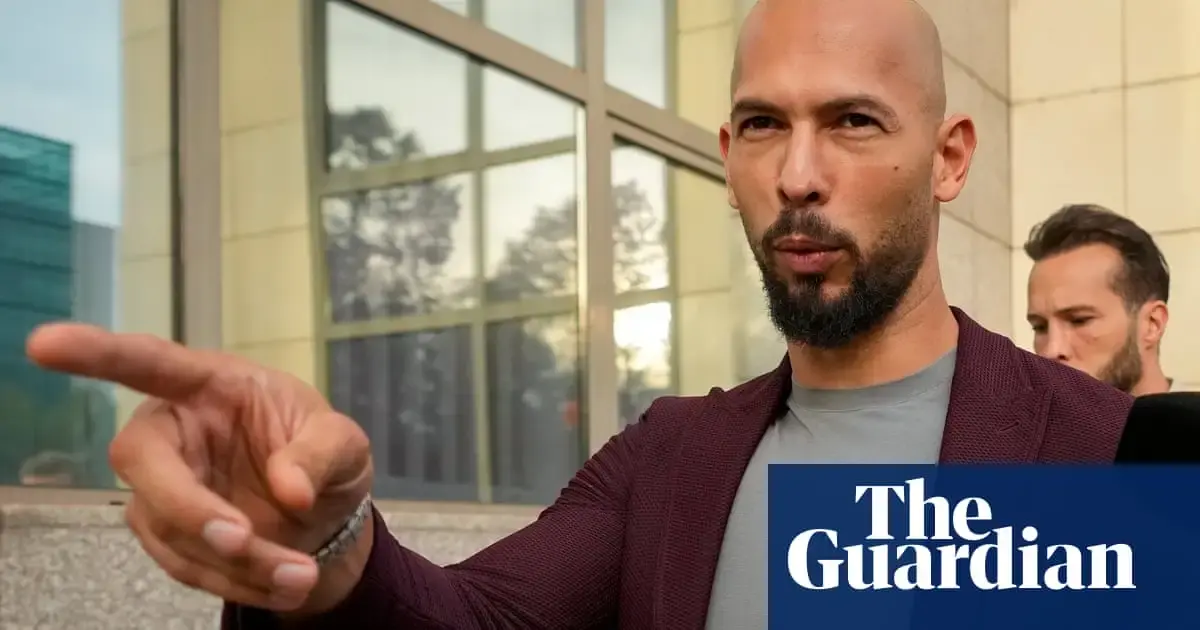- cross-posted to:
- mensliberation@lemmy.ca
Note that this poll only targetted around 3000 UK adults aged 16+. Nonetheless I personally think the trend this poll highlights is worrying and worthy of discussion.
Also note I changed the original title to not use the terms “Gen Z” and “baby boomers” since I think putting in the ages is clearer.
Some choice quotes:
On feminism, 16% of [16 to 29-year-old] males felt it had done more harm than good. Among over-60s the figure was 13%.
One in four UK males aged 16 to 29 believe it is harder to be a man than a woman.
37% of men aged 16 to 29 consider “toxic masculinity” an unhelpful phrase, roughly double the number of young women who don’t like it.
The figures emerged from Ipsos polling for King’s College London’s Policy Institute and the Global Institute for Women’s Leadership.
“This is a new and unusual generational pattern,” said Prof Bobby Duffy, director of the Policy Institute. “Normally, it tends to be the case that younger generations are consistently more comfortable with emerging social norms, as they grew up with these as a natural part of their lives.”
But Duffy said: “There is a consistent minority of between one-fifth and one-third who hold the opposite view. This points to a real risk of fractious division among this coming generation.”
Prof Rosie Campbell, director of the Global Institute for Women’s Leadership at King’s, said: “The fact that this group is the first to derive most of their information from social media is likely to be at least part of the explanation.
In the meantime, social media algorithms are filling the vacuum, she said. “This could be something that changes when young men enter the workforce but we can’t take that for granted given how important social media is in the way we understand ourselves.”

Many young men have no political/financial power to begin with, and take generalized criticism personally. Some feminists are openly hostile and live up to the stereotypes. Those are the encounters people remember. I can see how gullible, spineless young men can fall into the trap of thinking that feminism is “harmful”.

Probably related to this:
https://feddit.uk/post/7126064
It’s really frustrating to see (young) cis men continuously fall into the trap of patriarchy, making their own life worse but especially making it for everyone else hell…

When I hear things like this it just highlights the dangers of right-wing oversimplification. Compared to Gloria Steinem or even Bell Hooks, Andrew Tate is going to be much easier to understand and be relatable to a 10-year old boy. It’s not a coincidence that the human trafficker mostly appeals to children since most people with any life experience are going to immediately recognize how childish and absurd the deliberately inflammatory things he says are. It’s as engaging to a little kid as fart jokes.
The inverse can’t be true. Understanding the systemic nature of oppression is asking a lot of many adults let alone little kids. There’s no way simplify the truth without it being overly-simplistic, and overly-simplistic is what the right runs on. Easy intuitive answers you just have to claim and not really think about are very appealing to children and the intellectually cowardly. Children naturally trust adults (unless they’ve directly suffered for trusting adults) so it’s much easier to absorb the simplistic even if it’s wrong.
An older teenager has a brain developed enough to understand at an adult level, but at this point they would have to do a lot of work to critisize the simplistic shit they were exposed to while highly impressionable while at the same time trying to comprehend the true scope of wider reality. Many will just forgo this exercise and stick to the simplistic answers. Many will not be satisfied with childish explanations which turn out not to be consistent with reality most of the time.
By the time anyone is 60 they are going to have been exposed to a lot, and it is clear to any mature adult that pretty much everything is much more complex than what is immediately or intuitively apparent. While Boomers famously hold onto many simplistic beliefs, this is more of a matter of desire to hold those beliefs and refusal to admit that they could be wrong about such important things. They are aware of all the exceptions to their beliefs they experienced and will often even act on what they’ve learned rather than the party-line BS they say is true.
I grew up with a kind of Andrew Tate as well and had quite a bit to learn myself when I was a teen. Hopefully gen z has an easier time growing past this stupid crap than previous generations.

There are many forces at play fostering this kind of polarization. Social medias cultivate it to generate reactions. State controlled troll farms are being used as a tool of social disruption against enemy countries. Various unscrupulous attention seekers surf on that wave. Many people get caught and amplify it further. I feel this goes a long way into explaining these poll results.

This is the result of a long-term, political strategy.
Anyone remember GamerGate? There has been an extreme backlash against feminism since the mid-2010s which GamerGate was a part of. (GamerGate in itself was part of a wider strategy that the far-right began to use on 4chan in the late 00s.)Steve Bannon (then EIC at Breitbart) pushed GamerGate’s anti-feminism into the mainstream right-wing politics because he saw it as an opportunity to recruit young men. Unfortunately he was right and his strategy has paid off, forming an anti-feminist alliance that has become a core belief of right-wing parties all around the world. It has creeped into the mainstream with figures like Andrew Tate who fulfill the role of recruiting young men for even more extreme anti-feminist, far-right content.
This was the background noise that these young men grew up in. Many of the influencers they followed would tell them endlessly how feminism is to be blamed for bad games (during GamerGate) and - in general - how feminism is to be blamed for most ills of modern society. That young men were effed over by capitalism and patriarchy was - of course - deliberately omitted.

This takes place in the UK right? I know TERFs are a big group there. Are most of these people’s interactions with people who call themselves feminist TERFs?
🤖 I’m a bot that provides automatic summaries for articles:
Click here to see the summary
One in four UK males aged 16 to 29 believe it is harder to be a man than a woman and a fifth now look favourably on the social media influencer Andrew Tate, the polling of over 3,600 people found.
Tate, the British-American former kickboxer who has 8.7 million followers on the social media platform X, is facing charges in Romania, which he denies, of human trafficking, rape and forming a criminal gang to sexually exploit women.
The research also found that 37% of men aged 16 to 29 consider “toxic masculinity” an unhelpful phrase, roughly double the number of young women who don’t like it.
Prof Rosie Campbell, director of the Global Institute for Women’s Leadership at King’s, said: “The fact that this group is the first to derive most of their information from social media is likely to be at least part of the explanation.
Tate preaches that young men should take control of their own lives, shouting at them in one recent video over footage of him vaping, firing a gun and driving a sports car: “You’re not supposed to be happy.
Colin Brent, a youth worker in Ealing, said some of Tate’s appeal to black and minority ethnic young people appeared to be that he offered a more direct route to change in their lives.
Saved 72% of original text.

Shitbags like Tate have done a lot of harm. The good news is that great parenting can shield kids from this kind of nonsense. Oh wait…


